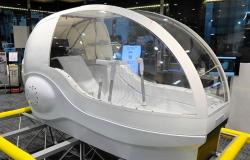Quantum computers have long been a distant dream of computer science researchers, but today they are gradually becoming a reality. These computers promise to solve complex problems that would take traditional computers thousands of years to solve. For them to reach their full potential, however, it is necessary to manipulate small units of information called qubits with extreme precision. However, a team of researchers recently made a spectacular breakthrough by managing to control four qubits simultaneously with unprecedented precision.
What is a qubit and why is it so important?
In traditional computers, information is stored and processed in the form of bits which can be either 0 or 1. These computers therefore operate on a binary basis. Quantum computers use qubits. A qubit, due to the laws of quantum physics, can exist in a state of superpositionthat is, it can be 0 and 1 simultaneously. This ability to be in multiple states at the same time allows quantum computers to perform calculations much more quickly than their traditional counterparts, particularly for complex tasks such as modeling molecules or solving certain types of optimization problems.
However, controlling these qubits is not a simple task. They are indeed extremely sensitive to external disturbanceswhich makes them difficult to handle and maintain in a stable state. This has posed one of the main challenges for quantum computing researchers: achieving precise control of multiple qubits at the same time.
A major breakthrough in controlling qubits
It is in this context that the team from Delft University of Technology (TU Delft), in the Netherlands, recently achieved an impressive feat. The researchers managed to controlling a four-qubit system using quantum dots. Quantum dots are tiny semiconductor devices in which qubits are confined. Thanks to advances in measurement and control techniques, the team demonstrated that it is now possible to manipulate these qubits very precisely, which represents a major advance in the field.
Lieven Vandersypen, the lead author of the study, explains that during this new research, the team first sought to adjust the interactions between the qubits, in particular the spin exchanges (the internal movements of the particles subatomic) in a network of quantum dots. To do this, they used voltage pulses to control the interactions between the spins of each qubit. This method allowed the team not only to control qubits individually, but also to perform operations on multiple qubits simultaneously, creating quantum gates that exchange information between two qubits at a time.
Why is this discovery so important?
Before this discovery, researchers had managed to control quantum systems composed of only two qubits. The TU Delft team is the first to have shown that it is possible to control a system of four qubits with precision sufficient to perform reliable quantum operations. This advance is significant, because the more the number of qubits increases, the more complex the system becomes. Controlling more qubits is essential for quantum computers to perform truly powerful calculations.
Each qubit in this system consists of two spins and their manipulation is carried out by precise voltage pulses. This control over each qubit opens the way to new possibilities for the scale of quantum computers, enabling larger and faster calculations. This new method is promising because it allows not only to control isolated qubits, but also to realize complex interactions between qubits in a network.
The future impact of this advance
The ability to control multiple qubits at once is not simply a technological feat; she has many potential applications in various fields. For example, researchers in chemistry and biology could use quantum computers to simulate complex molecules, which could revolutionize the development of new drugs and materials. In the field of artificial intelligence, more powerful quantum algorithms could be developed to process data much more quickly and efficiently than today.
In addition, this advance could make it possible to simulate complex physical phenomena such as magnetism or the physics of materials at the atomic scale. By modeling these phenomena with more precision, researchers could better understand fundamental natural phenomena, or even develop new technologies in sectors such as new generation batteries or the optimization of energy networks.
A road still strewn with pitfalls
Although this discovery is an important step, there is still much to be done before quantum computing becomes a fully functional and accessible reality. For example, the fidelity of two-qubit operations (those that exchange information between two different qubits) will need to be improved and techniques to handle quantum error will need to be developed. One of the crucial next steps would be to demonstrate that these two-qubit quantum gates can also be realized with fidelity above 99%, which would ensure more reliable and longer-lasting calculations.






